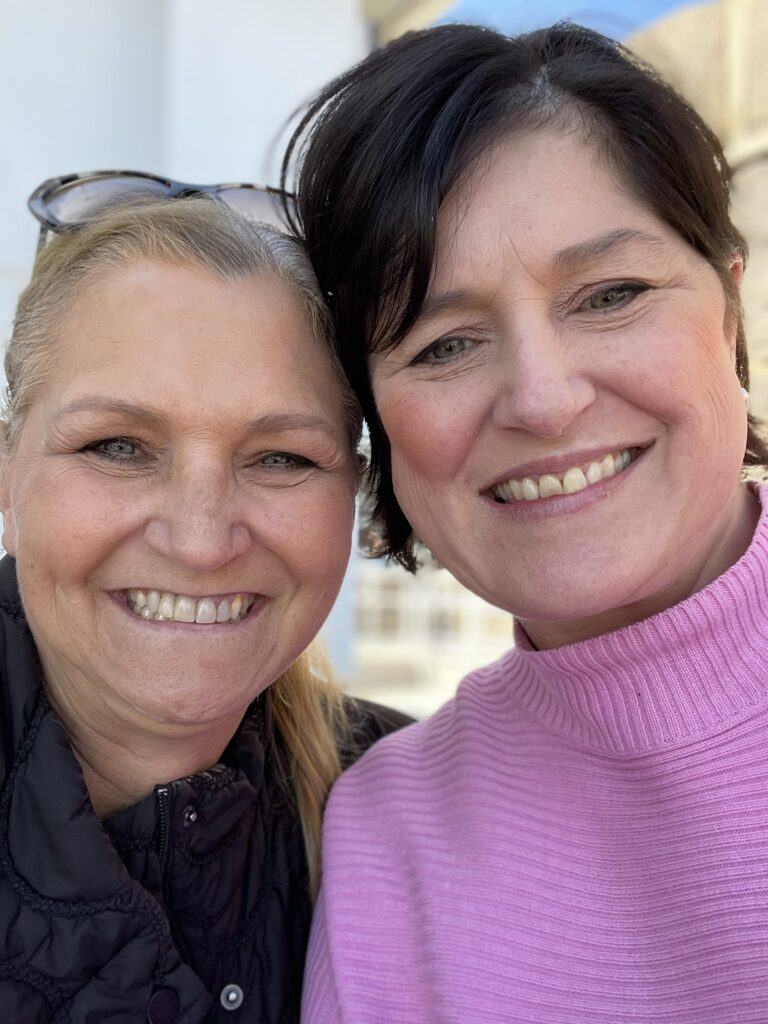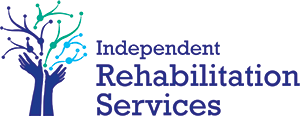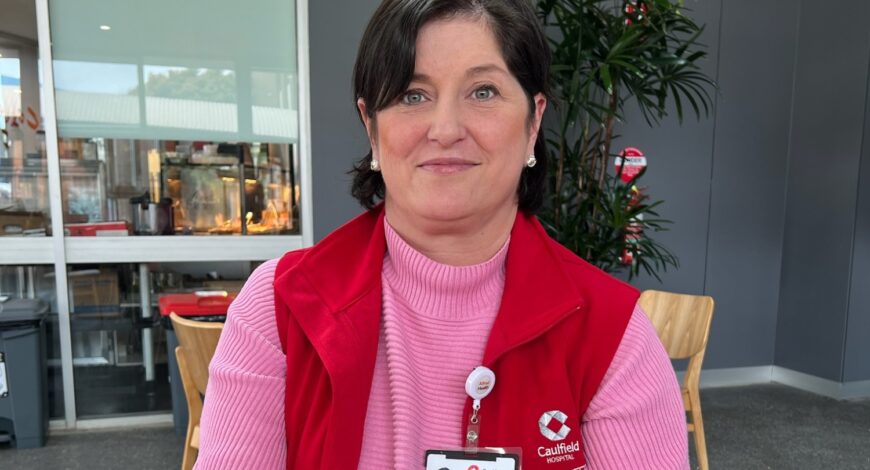You might not expect aphasia or brain injury to be described as a gift, but that is exactly what Georgie calls it. Without her brain injury, resulting in aphasia, she would not be living the life she is now.
Georgie is now 48 years old. Prior to her brain injury she was a high ranking executive in insurance. She was also an alcoholic. Georgie moved to Melbourne from a small country town and began to attend Alcoholics Anonymous (AA). She succeeded in getting sober but, unexpectedly, the pandemic came along and all of a sudden there were redundancies and heightened stress and she relapsed into a regular drinking habit.
In February 2022, while intoxicated, Georgie had a seizure and a fall where she struck her head. Georgie was at St Vincent’s Hospital for a month, followed by the Caulfield Acquired Brain Injury Unit for rehabilitation. In those early days she was very confused due to the brain swelling/injury and her communication was greatly affected, presenting with aphasia and verbal dyspraxia. Aphasia is a language disorder caused by damage to the language area of the brain. It can affect talking, listening, reading and writing. Verbal dyspraxia impacts a person’s ability to coordinate movements for speech. Georgie also had right sided weakness that affected her strength, balance and coordination, and cognitive changes such as slowed speed of processing, and difficulty with planning and organising.


Georgie has been an active participant in a great deal of therapy, including Speech Pathology, Physiotherapy and Occupational Therapy, and she feels she has been having great results since becoming sober in November 2022. She acknowledges that practice is really important and face-to-face therapy, in particular, has helped her so much. Her support workers have helped immensely along her journey and she’s had great experiences with allied health professionals.
But it’s not always been easy – often people assume that she has an intellectual disability as there is a huge gap in understanding around aphasia. This brings Georgie to her main mission today – raising awareness and understanding of aphasia. She is now on the Aphasia Victoria committee and hopes to help with their events and awareness raising.
Georgie likes being busy and giving back to the community. She is a member of numerous groups and initiatives which also aid in her rehabilitation, such as volunteering at Caulfield Hospital, Chatterbox Group, Sing for Recovery, community aphasia groups and the ACU Student Clinic. Outside of these activities, she enjoys shopping, watching movies, sipping on lattes at cafes (a fave spot being her local Laurent Bakery) and walking her sausage dog, Poco. Georgie lives independently, maintaining her own apartment and managing her schedule with the organisation skills she gained from participating in OT.
Georgie hopes that by sharing her story she can not only bring attention to aphasia but offer a positive example to others who have experienced brain injury as an indirect result of their addictive behaviours. It can be a tricky situation to navigate, however Georgie wants others to know that “every day gets better. It can be hard work, but it gets better. Don’t give up!”
Georgie is grateful for her sobriety and for her life as it is now, and for that she sees her experience as a gift!
To find out more about aphasia, visit the Australian Aphasia Association or Aphasia Victoria


3 Comment(s)
So wonderful to read your full story. Georgie, you are an inspiration and an example of the power of gratitude. Xx
Georgie seems so happy and she should be very proud of what she has achieved. Georgie makes our community a happy place and we are very fortunate to be a part of her journey! Congratulations Georgie!
Congratulations Georgie on your recovery and now a role model & inspiration to many people who have brain injuries including asphasia. Working together with all the health professionals and your parents have helped you achieve a new life for you. All the best for today & tomorrow. We have heard of how you and your Poco are enjoying and accepting your new life.